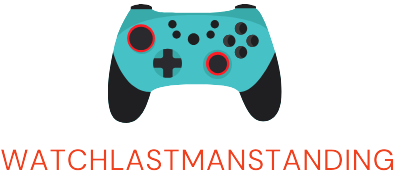Table of Contents
ToggleIn a world where cheating seems to pop up like unwanted weeds in a garden, staying ahead of the game is crucial. Schools, colleges, and even workplaces are on high alert, implementing innovative strategies to keep dishonesty at bay. Who knew that preventing cheating could be as exciting as a detective novel? With technology and creativity at their fingertips, institutions are rolling out the red carpet for a new era of integrity.
Recent Trends In Cheating Prevention News
Educational institutions increasingly embrace technology to combat cheating. Many universities implement software for plagiarism detection, ensuring students submit original work. Schools also utilize online proctoring systems that monitor test-takers via webcams, reducing opportunities for dishonesty.
Training sessions aimed at promoting academic integrity become more common. Faculty members receive resources on how to identify and address cheating. Workshops provide students with insights on the importance of ethics in their education and future careers.
Alternative assessment methods gain traction as well. Project-based learning and open-book exams offer opportunities for students to demonstrate comprehension without relying on rote memorization. Such strategies prioritize understanding over mere performance on traditional tests.
Furthermore, public awareness campaigns raise consciousness about the consequences of dishonest behavior. Institutions share statistics showing the negative impact cheating has on a student’s career. Testimonials from former students underscore the long-term effects of dishonesty on professional reputation.
Collaboration among schools, workplaces, and technology companies continues to strengthen. Partnerships lead to the development of more robust tools for monitoring and preventing cheating. These joint efforts foster a culture of integrity within academic and professional environments.
Data collection proves vital for refining prevention strategies. Institutions analyze trends in cheating incidents to identify patterns and improve their responses. By leveraging this information, schools can better tailor their policies to address specific issues.
Innovations in artificial intelligence offer new possibilities for cheating prevention. AI algorithms can detect suspicious behavior during exams and flag it for review. As technology progresses, institutions adapt their approaches to ensure fairness and uphold integrity in educational settings.
Innovative Technologies Addressing Cheating

Educational institutions are adopting innovative technology to prevent cheating. These advancements enhance the integrity of assessments, ensuring a fair environment for all students.
Online Proctoring Solutions
Many colleges implement online proctoring solutions to monitor exam integrity. These platforms use video surveillance, screen sharing, and advanced browser locking to deter dishonest behavior. Students are monitored in real time, which minimizes the likelihood of cheating. Integrating AI technology helps ensure effective identification of suspicious activity during online assessments. Institutions report increased confidence in online exam security as proctoring solutions evolve to meet modern challenges.
AI and Machine Learning In Education
Artificial intelligence and machine learning play significant roles in enhancing educational integrity. AI algorithms analyze patterns in student behavior, identifying anomalies that could indicate cheating. These technologies flag suspicious activities during assessments, allowing educators to investigate further. Machine learning models adapt over time, improving accuracy in detecting dishonest behaviors. By leveraging data analytics, institutions can refine their strategies, ensuring a culture of honesty and accountability persists in academic environments.
Strategies For Schools and Institutions
Educational institutions employ various strategies to combat cheating effectively. Approaches include policy changes, enhanced training, and resource allocation.
Policy Changes and Implementations
Schools and universities revise their academic integrity policies. By clearly outlining consequences for cheating, they deter dishonest behavior. Institutions also implement honor codes, fostering a culture of trust among students. Additionally, many adopt stricter exam protocols, requiring real-time identity verification during assessments. Surveillance technology further supports these measures, ensuring that academic integrity remains a priority.
Training and Resources for Educators
Faculty receive targeted training to recognize and address cheating. Workshops on academic integrity empower teachers with the tools needed to engage students in discussions about ethics. Institutions also provide resources such as online modules and handbooks that detail best practices for maintaining honesty. Peer collaboration encourages educators to share effective strategies for preventing cheating, ultimately creating a supportive learning environment.
Case Studies and Success Stories
Educational institutions successfully implement diverse strategies to combat cheating. These initiatives yield measurable improvements in academic honesty and integrity.
Effective Cheating Prevention Programs
Successful programs focus on raising awareness of academic integrity and fostering a culture of honesty. Technology plays a significant role, with many universities adopting sophisticated plagiarism detection software. Programs that include comprehensive training for faculty enhance their ability to recognize and address instances of cheating. Peer accountability emerges as another effective tool, promoting student engagement in upholding ethical standards. Research indicates a notable reduction in cheating incidents at schools that implement honor codes. These codes empower students to take ownership of their actions while addressing dishonesty dynamically.
Lessons Learned From Failures
Not all anti-cheating measures achieve the desired results. Some institutions encounter challenges when relying solely on software solutions without proper oversight. Absence of proactive communication about policies can lead to misunderstandings among students and faculty alike. Case studies reveal that programs lacking student involvement face significant obstacles in maintaining academic integrity. Feedback mechanisms often fall short, leaving institutions with few insights into the efficacy of their strategies. Examining these failures highlights the importance of continual assessment and adaptation in cheating prevention efforts. As a result, investing in comprehensive training and fostering collaboration among stakeholders becomes paramount in ensuring effectiveness.
Future Directions In Cheating Prevention
Institutions increasingly emphasize integrating advanced technologies for cheating prevention. Leveraging data analysis, schools can identify trends in cheating that inform policy adjustments. Machine learning tools enhance detection accuracy, adapting to evolving cheating methods. Innovative approaches include expanding the use of biometric verification, ensuring that test-takers are who they claim to be.
Training programs for faculty are critical. Providing educators with resources to detect cheating improves their effectiveness in upholding academic integrity. Furthermore, collaborative efforts between education institutions and technology companies lead to the creation of sophisticated monitoring tools. Real-time surveillance methods continue evolving, combining comprehensive oversight with respect for privacy concerns.
Assessment strategies are shifting towards promoting understanding rather than memorization. Project-based assignments and open-book tests facilitate deeper learning experiences. Institutions now recognize the value of engaging students in discussions about academic integrity, empowering them to take ownership of their actions. Evolving honor codes resonate with student bodies, fostering a communal commitment to honesty.
Public awareness campaigns address the long-term repercussions of dishonesty on professional futures. Campaigns increasingly showcase testimonials, illustrating real-life impacts on careers and reputations. These narratives create a culture of transparency, enhancing understanding of ethical behavior’s importance.
Feedback mechanisms become crucial for refining prevention strategies. Collecting student input ensures programs are relevant and responsive. Continuously assessing these strategies guarantees that educational institutions remain adaptive in the fight against cheating. Combining technological advancements with proactive communication will drive future initiatives, enhancing the integrity of educational environments.
The landscape of cheating prevention is evolving rapidly as institutions embrace innovative strategies and technology. By fostering a culture of integrity and accountability, schools and workplaces are making strides in maintaining honesty.
The collaboration between educational institutions and tech companies is paving the way for more effective monitoring tools while ensuring privacy concerns are addressed. As assessment methods shift toward understanding rather than memorization, students are encouraged to engage with academic integrity actively.
With a focus on continuous improvement and adaptation, the fight against cheating is becoming more robust. This commitment to integrity not only enhances academic environments but also prepares individuals for ethical challenges in their professional lives.







